Did you really grow up in a Nigerian home if you didn’t have older folks who shared bedtime stories that teased your imagination and curiosity? From the mischievous tortoise to the iconic Olurombi and The Iroko tree, this article contains 17 Nigerian folktales that’ll make you feel like a child again.
Yoruba folktales
How Aaye and Aigboran became enemies

A long time ago, there was a man named Aigboran. He was married to a beautiful woman, Aaye, whom he cherished and worshipped like a god. In the village of Ojutaye, everyone knew Aaye was the most beautiful woman around.
Instead of feeling fortunate, Aigboran was deeply troubled by her beauty and began monitoring her every move. Aaye, a trader who sold beans like many other women, often attracted attention from the men in the village. One day, while passing by with her calabash of beans, Aigboran’s close friend and a group of men started teasing her.
One of them said, “Aaye, your beauty is enchanting. Don’t sell me beans; I want to buy your beauty. Will you sell it to me?” The other men joined in, refusing to pay her. Embarrassed and hurt, Aaye left in tears. When word of this reached Aigboran, his suspicions grew even stronger.
Determined to catch Aaye in the act, Aigboran consulted a herbalist to put “magun” (a powerful charm) on his wife. The herbalist advised against it, but Aigboran wouldn’t listen. He went to Orunmila, the god of wisdom, who also warned him, insisting that Aaye was faithful. But Aigboran refused to believe it.
In his desperation, Aigboran went to Esu, the trickster god, who gave him a plan. Esu taught Aigboran how to remove his eyes and attach them to Aaye’s calabash whenever she went to sell beans. This way, Aigboran could watch her every move while he stayed blind at home. Once she returned, he would take his eyes off the calabash and place them back in his sockets.
One fateful day, Aaye sold her beans and the calabash to a man performing a ritual. Excited by the large sum of money she received, she returned home and began counting her money when Aigboran, still blind, called from the room.
“Aaye mi, ni bo ni igba ewa re wa? Mo n wa oju mi o?
(Aaye mi, where is your calabash of beans? I’m looking for my eyes.)
Aaye, unaware of her husband’s actions, told him she had sold the calabash along with the beans. Aigboran screamed and started crying, explaining how he had been using the calabash to monitor her. Shocked and terrified that she had unknowingly made her husband blind, Aaye fled from the house and was never seen again.
Aigboran, helpless and blind, was taken to Orunmila by a kind person. But Orunmila simply said, “If we don’t find Aaye, you’ll never get your eyes back. They are with her.” Aigboran remained blind for the rest of his life because Aaye could not be found.
This tale led to the popular Yoruba saying, “Airoju Airaye” (The blindness of life), which is still used today to describe chaos or trouble.
Olurounbi and the Iroko tree (Itan Oluronbi ati igi Iroko)
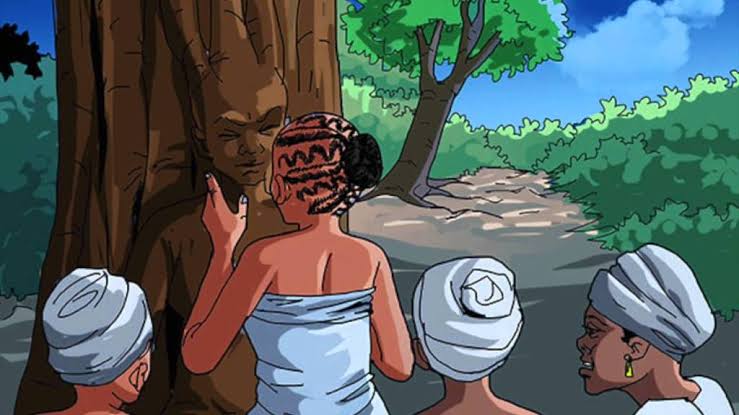
A long time ago, there was a village where many women were barren. They desperately wanted children and asked the spirit inside the big Iroko tree for help.
One by one, they went to visit the Iroko tree to beg the Iroko tree spirit for help. The Iroko tree asked each woman who showed up what she would give in return for bearing a child. Woman after woman promised the Iroko tree spirit goats, yams, handwoven cloth, or whatever it was she sold for a living, as many of these women were traders who sold their wares at a weekly market in an open field.
One of the women, Oluronbi, also approached the Iroko tree for help. She was so desperate for a child that when the Iroko tree spirit asked her what she would give in return for one, she eagerly offered her firstborn child.
Before the year ran out, many women had given birth to children and returned to the Iroko tree to fulfil their various promises. When it was time for Oluronbi to fulfil her promise, she went to the Iroko tree to plead her case. She could offer the Iroko tree everything, anything else, but not her child. But the tree spirit would not be swayed and took the child despite Oluronbi’s cries and pleas.
Why mosquitoes buzz in people’s ears

A very long time ago, when Ear was a beautiful woman and ready for marriage, several suitors were wooing her. There were big, small, fast, sleek, and slow creatures. But they all professed their love for Ear and demonstrated their skills, and there was such an impressive array of skills that Ear had a difficult time deciding. Then came the mosquito.
“I would like you to be my wife”, proposed Mosquito.
Ear was so offended by this insult. “Look around you!” she cried. “Of all the people and creatures in the whole world, what makes you think I can entertain such a thought?” Ear was distressed. “Marry you?” she continued. “You will be dead before the week is over. You’re not strong, you’re weak and I will never marry you.”
Ear was exhausted from this tirade and fell into her seat, fanning herself vigorously like she was trying to get any image of Mosquito out of her head. Meanwhile, Mosquito was really hurt by all that Ear said. It was embarrassing to be talked to like that in front of all the other creatures whispering to each other and giggling. They all agreed with Ear. “Dead before the week is over?” thought Mosquito as he slunk away. We’ll see about that.
From that day forward, whenever Mosquito sees Ear, he flies up to her and says, “Emi re, mi o ti ku,” which in English means, “Here I am; I am not dead.”
Tortoise and Yannibo (Itan Ijapa ati Yannibo)

Several years ago, Tortoise and his wife, Yannibo, struggled to have children. Despite all their efforts, they remained childless, and frustration began to set in.
Desperate for a solution, Tortoise visited a herbalist to seek help. After listening to his story, the herbalist prepared a special concoction for Yannibo. It was made from mushrooms, bushmeat, and fish stew, and it smelled delicious. However, the herbalist warned Tortoise several times not to taste the concoction, as it was meant solely for his wife. Tortoise thanked him and placed the calabash containing the mixture in his bag.
On his way home, the aroma of the concoction became overwhelming. Tortoise tried to resist, but his greed and love for food got the better of him. Unable to control himself, he sat under a tree, took out the calabash, and defied the herbalist’s instructions by eating the entire concoction, leaving none for his wife.
As Tortoise stood to leave, he felt strange movements in his stomach. Suddenly, his belly began to swell—he was pregnant.
Panicking, Tortoise realised he couldn’t return home to his wife after what he’d done, and he was too ashamed to go back to the herbalist. In despair, he began to cry, but then an idea struck him. He decided to return to the herbalist, explaining what had happened through a song.
When Yannibo heard the song, she became furious, realising what her husband had done. The concoction, meant to help her conceive, had instead affected Tortoise. The herbalist was equally enraged and kept shouting, “Didn’t I tell you not to drink the soup? Didn’t I warn you?”
In great pain and regret, Tortoise eventually died a few hours later in Yannibo’s arms.
Why bats fly at night
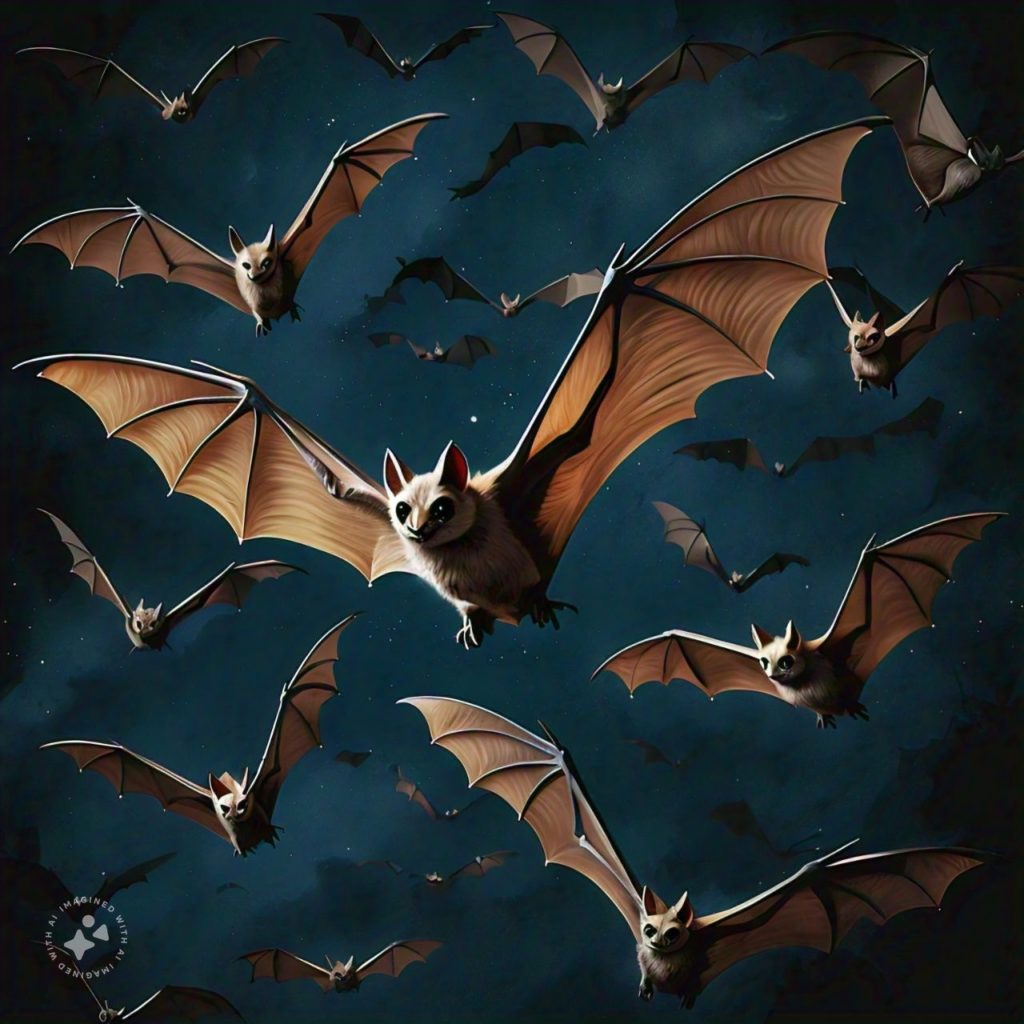
The bat and the squirrel were very good friends. They lived in a village near Idin forest. There came a time when the bat became jealous of the squirrel because the squirrel was good-looking, and he, the bat, was ugly.
The bat was a very good cook, so whenever the squirrel visited the bat, the bat would cook a mouth-watering soup, which the squirrel would gladly eat. The squirrel was never good at cooking, so one day, he begged the bat to teach him how to cook a delicious soup. The jealous bat told the squirrel, “whenever I want to cook my delicious soup, I dip myself in boiling water then cook the soup with the hot water“.
The squirrel was very glad and thanked the bat. He ran home and told his wife to boil some water, which she did. The squirrel narrated what the bat had told him to his wife, who laughed and told him it was all a lie. When the squirrel’s wife was not looking, the squirrel quickly jumped into the boiling water and died instantly.
The squirrel’s wife was very angry and reported the matter to the king, who also became angry. The king was so angry that he ordered his guards and the villagers to capture the bat and kill him. That evening, two ants were strolling past the bat’s house and were discussing the king’s order to capture and kill the bat. When the bat heard this, he became so scared that he hid in the Idin forest. Since then, afraid that he might be caught if he fly during the day, the bat has been flying at night. This is why bats fly at night.
Igbo folktales
The blind man, the cripple, the poor man, the thief and the king (Akuko onye isi, onye ngwuro, ogbenye na Eze)
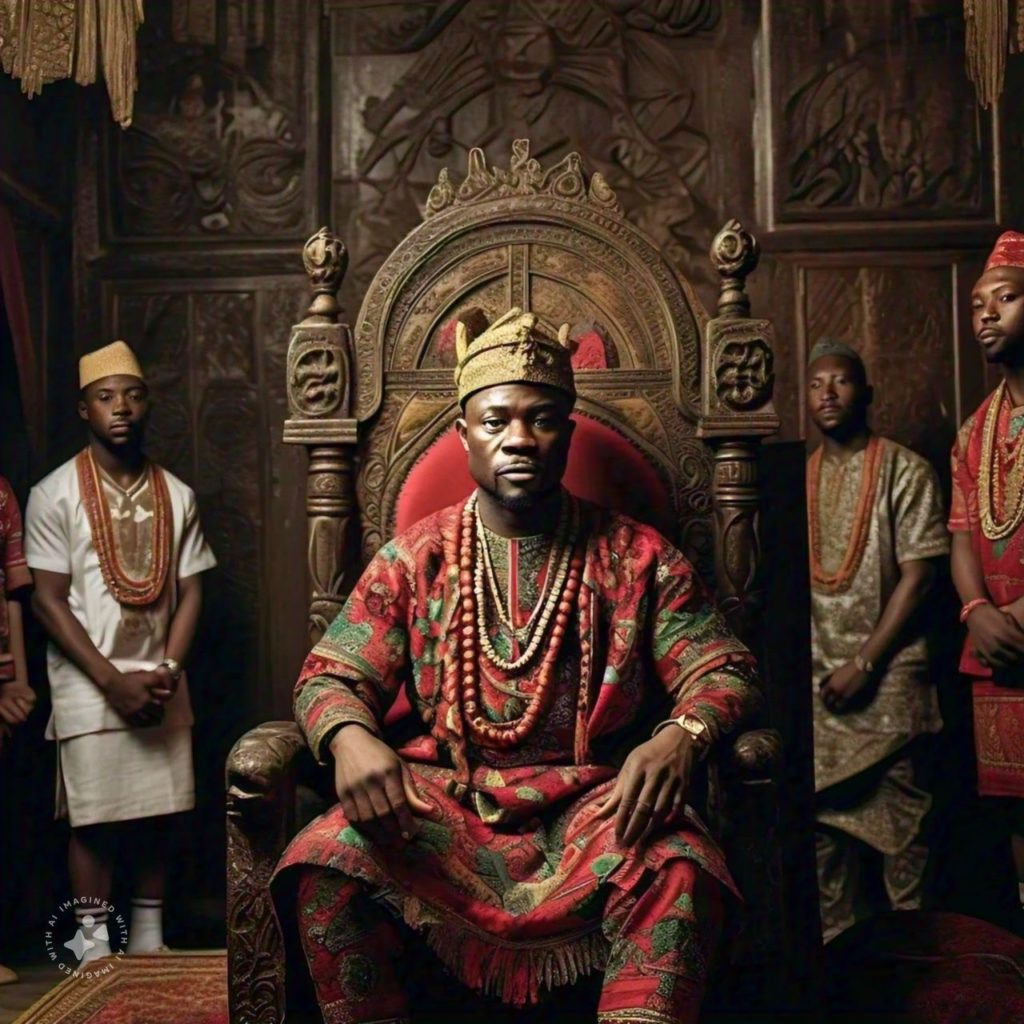
A blind man once found himself in a well-known town, struck by a great famine. Seeking help, he approached the king, who generously gave him yams and meat but advised him to keep it a secret.
As the blind man made his way home, he encountered a hungry cripple and told him about the king’s generosity. The cripple went to the king and asked for food. When the king asked how he knew about the food, he said the blind man had told him. The king gave the cripple yams and meat and urged him to stay quiet about it.
However, as the cripple left, he met a poor man and loudly announced, “Go to the king; he’s helping the needy!” The poor man hurried to the king for his share. When asked who informed him, he pointed to the cripple. The king gave him food as well and repeated the same advice.
Later, the poor man encountered a thief who begged to know where he got the food. The poor man refused to share the information. Undeterred, the thief went to the king, asking for food. The king questioned who he had met on the way, and the thief mentioned the cripple but claimed they hadn’t spoken.
The king then instructed the thief to steal from the blind man and the cripple, advising him to leave the poor man alone, as he would report him. The thief stole from the blind man, who couldn’t see him, and from the cripple, who couldn’t chase him. He left the poor man untouched, fearing retribution from the king.
How death came into the world

In the olden days, God called Goat and sent him to the earth to deliver a message to mankind: as long as there was procreation, there would be no death. However, Goat became distracted along the way, stopping to eat grass and chat with friends, wasting valuable time.
Seeing this, God sent Dog and Tortoise to deliver the message instead. Dog, proud of his speed, underestimated Tortoise and thought he could do other things before delivering the message. He wandered into the bush, eating anything he found, even filth. Occasionally, he’d remember his mission, but each time, Tortoise would defecate, distracting Dog further with his waste.
Tortoise, though slow, was determined and steady. He reached mankind first, but in his excitement, he delivered the message wrongly. He told humans that God had said they would all begin to die from that day onward.
By the time Dog realised his delay and ran to deliver the correct message, it was too late. He arrived to find humans already crying and dying.
The story of origin

Among the Igbo, it is believed their origin traces back to Nri, a town in Anambra State. The founding father, Eri, was said to have come from heaven with his wife, Namaku, who was sent by Chukwu (God). They landed and settled in Aguleri. When Eri and his wife arrived, the land was marshy, making it impossible for him to rest his legs, so he lived on an anthill. Frustrated by his situation, Eri complained to God, who then sent an Awka blacksmith with bellows, fire, and charcoal to dry the land. Once the blacksmith completed his task, Eri rewarded him with an ofo, a symbol of authority that gave him special rights to the blacksmithing profession.
According to historian Afigbo, Eri lived solely on the benevolence of God. He neither bought nor planted food, as God provided for him and his family. However, after Eri’s death, this divine provision ceased, as the covenant between Eri and God ended. As people began to starve, Nri, Eri’s first son, complained to God about their suffering. In response, God ordered Nri to sacrifice his first daughter and son, burying them in separate graves. Nri obeyed, and three weeks later, yam and cocoyam sprouted from the graves, providing food for the people.
Later, God directed Nri to sacrifice his slaves and bury them as he had done with his children. From their graves, palm trees and palm fruit grew. Nri became prosperous, but when God instructed him to distribute food to others, he refused, believing his wealth was earned through the blood of his children and slaves. This act of refusal made him even richer and gave him authority over those who lived around him.
The orphan boy and the magic stone
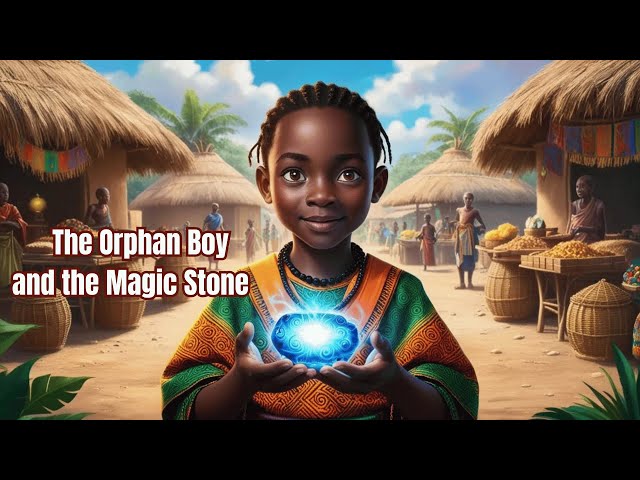
Many years ago, a chief of Inde named Inkita had a son, Ayong Kita, whose mother died during his birth. Inkita, a skilled hunter, often took Ayong on hunting trips in the dense grasslands of the Inde country. In those times, guns were unheard of, and the chief hunted with a bow and arrows, a craft he passed on to his son. Ayong quickly became skilled at using his small bow, often hitting lizards and small birds with ease.
When Ayong turned ten, his father passed away, leaving him as the head of the household. This newfound authority over the family slaves made them resentful, and they plotted to kill him. Sensing danger, Ayong fled into the bush. For days, he survived on nuts from palm trees and small animals like squirrels and birds.
One night, as Ayong slept in the hollow of a tree, his father appeared to him in a dream, revealing the location of a hidden treasure. However, being young and frightened, Ayong didn’t act on the vision. Days later, while searching for water, Ayong approached a lake but heard a hissing voice warning him not to drink. Frightened, he fled without quenching his thirst.
The next morning, Ayong encountered an old woman with long hair. Though her appearance frightened him, she reassured Ayong that she meant no harm to him and that she had been the one to warn him about the lake’s danger. She explained that the water contained bad Juju that could have killed him. The old woman then took Ayong to a stream, where she pulled out a small, shiny stone. She instructed him to return to where his father had shown him in the dream and dig for treasure.
Following her advice, Ayong dug at the designated spot and uncovered a great treasure. The old woman told him to buy two strong slaves and have them build a house deep in the forest. She instructed Ayong to place the magical stone inside the house, assuring him that the stone would grant it whenever he wished for anything.
Ayong did as instructed, and for years, he became wealthy and powerful, acquiring many slaves and forming alliances with the Aro men, who were influential in the slave trade. He built a large town and lived comfortably. But ten years later, the old woman appeared to him in a dream, advising him to return the stone to the stream. Although Ayong had become rich, he wanted more—he desired to rule over his father’s land and the entire Inde country.
Determined, Ayong gathered Juju men and witch doctors and marched with his slaves to his father’s town. Before leaving, he held a meeting to identify any slaves with bad intentions who might plot against him. The Juju men pointed out fifty slaves, accusing them of being witches. Ayong immediately imprisoned and subjected them to the ordeal of the Esere bean, a deadly poison. None survived, confirming their guilt as witches.
Despite their deaths, the spirits of the witches haunted Ayong, causing him to fall ill. Once again, he summoned the Juju men, who revealed that the witches’ spirits were sucking his blood at night, causing his sickness. The Juju men recommended gathering ten of their kind to counteract the curse. Together, they exhumed the bodies of the witches, found them to be intact, and burned them one by one.
Afterwards, Ayong regained his health, took control of his father’s property, and ruled the land. Ever since, in the Inde country, those accused of witchcraft have been subjected to the Esere bean test. If they vomit the poison, they are declared innocent. If not, they die in agony, confirming their guilt.
Hausa folktales
Gizo the trickster
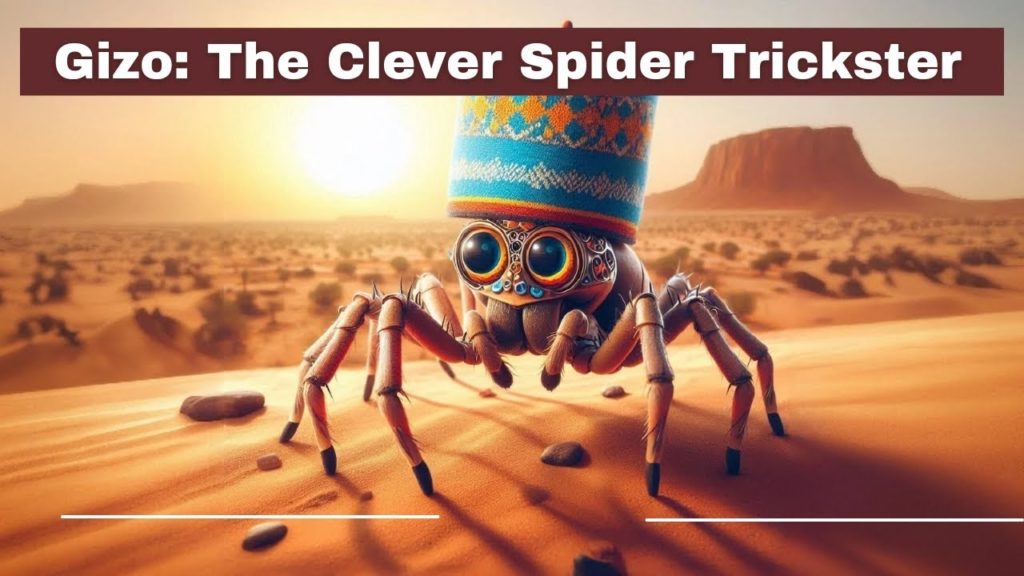
In Hausa folklore, Gizo (the Hausa equivalent of the spider or trickster) is often portrayed as a cunning, mischievous character. In this story, Gizo tricks a powerful king to gain access to his palace.
The king announced that he would reward anyone who could make him laugh. Many tried but failed. Gizo, knowing that the king was curious about rare things, said, “Your Majesty, I have a special riddle for you, but I will only tell it to you if you give me food first.”
The king, eager to hear the riddle, gave Gizo food. But after Gizo had eaten, he said, “Oh, I forgot the riddle! But don’t worry, if you give me more food, I will surely remember it.” The king, being generous and curious, kept giving Gizo food, but each time Gizo would come up with a new excuse for why he couldn’t remember the riddle.
Finally, the king, realizing he had been tricked, burst out laughing. He appreciated Gizo’s cleverness and gave him the reward for making him laugh, even though he had been deceived.
The story of the tongue

Once upon a time, a chief told one of his servants to bring him the best meat from the market. The servant brought him a tongue. The next day, the chief told the servant to go and bring him the worst meat in the markets. The servants again brought him a tongue.
“What?” the chief said, “when I asked you to bring the best meat, you brought me a tongue, and then you brought the same thing for the worst meat.
The servant replied, “Your highness, sometimes a man is very unhappy because of his tongue, and other times the tongue makes him very happy.” The chief sighed and said, “you are right, let us be master of our tongue”.
The story of “No King as God”

When an ordinary man appears before an African king, he typically greets him with, “May the king live forever!”
However, there once lived a man who refused to say these words. Instead, he always declared, “There is no king like God.” After hearing this repeatedly, the king grew angry and plotted to destroy the man.
One day, the king gave the man two silver rings, pretending they were a gift but secretly intending to use them against him. The man, now known as “No-King-as-God,” placed the rings in a dried ram’s horn and entrusted them to his wife for safekeeping.
A week later, the king sent No-King-as-God to a distant village on an errand. While he was away, the king visited his wife and offered her a thousand cowries, along with fine clothes, in exchange for what her husband had left with her. Tempted by the wealth, she gave the king the horn with the rings inside.
The king instructed his servants to throw the horn into a lake, where a large fish swallowed it.
On No-King-as-God’s return, he went fishing with his son and some friends. They caught the same large fish, and while cleaning it, his son found the ram’s horn inside. To their amazement, the rings were still safely stored.
“Truly,” he said, “there is no king like God.”
Just then, a royal messenger arrived, summoning the man to the king’s court. Before leaving, he asked his wife where the precious item he had entrusted to her was, but she lied, saying she thought a rat had eaten it.
At the royal court, the counsellors greeted the king with, “May the king live forever!” But No-King-as-God said, “There is no king like God.”
The king demanded the rings, ready to kill the man if he couldn’t produce them. But No-King-as-God reached under his robe, pulled out the horn, and handed it to the king. The king opened it and found the rings.
“Indeed, there is no king like God!” he exclaimed, and the counsellors all agreed.
In a gesture of admiration, the king divided his city in two and made No-King-as-God the ruler of half of it.
Other Nigerian folktales
Why the sun and moon live in the sky

Many years ago, the sun and water were great friends and lived together on earth. The sun often visited the water, but the water never visited him in return. One day, the sun asked the water why he never came to his house. The water explained that the sun’s house wasn’t big enough to accommodate him and his people. He warned that if he came, he would drive the sun out because his people were so numerous.
“If you want me to visit, you’ll need to build a very large compound,” the water said.
The sun promised to build the largest compound and returned home to tell his wife, the moon. The next day, he started building the huge compound to welcome his friend. Once it was ready, he invited the water to visit.
When the water arrived, he called out to the sun, asking if it was safe for him and his people to enter. The sun, excited to host his friend, said, “Yes, come in.”
The water flowed in, bringing along the fish and other water animals. Soon, the water reached knee level, and the water asked again if it was still safe. The sun assured him it was, so more water came in.
When the water rose to the height of a man’s head, the water asked again, “Do you want more of my people to come?”
The sun and moon, not fully understanding, said yes again. The water continued to rise, forcing the sun and moon to climb onto the roof.
Even after this, the water kept coming, and soon it overflowed the roof. The sun and moon had no choice but to rise into the sky, where they have remained ever since.
The ‘Nsasak bird and the Odudu bird

A long time ago, during the reign of King Adam of Calabar, the king wanted to know if there was any animal or bird capable of enduring long hunger. He promised to make the winner a chief of his tribe.
One of the contenders was the Nsasak bird, a small bird with a shining green and red breast, blue and yellow feathers, and a red neck. His primary food was ripe palm nuts. His competitor was the Odudu bird, larger in size, with black and brown feathers, a cream-coloured breast, and a long tail. The Odudu bird mainly fed on grasshoppers and crickets.
Though friends, both birds were eager to compete for the title. The confident Odudu bird believed his size would give him an advantage and offered to starve for seven days. The king then asked both birds to build houses, which he would inspect. Once satisfied, the birds would be locked inside, and the one who endured the longest without eating would be declared the winner.
The cunning ‘Nsasak bird, knowing he couldn’t survive seven days without food, devised a plan. He built a small hole in the wall of his house, covering it so the king wouldn’t notice during his inspection. The king carefully examined both houses and, seeing nothing unusual, declared them safe. He then locked the birds inside.
Every morning, the ‘Nsasak bird slipped out of his house through the hidden hole, flying far away to feed and enjoy the day. He ensured no one saw him and returned before sunset, sealing the hole behind him. Each night, he called out to the Odudu bird, encouraging him to stay strong and endure the hunger while pretending he was fine.
As the days passed, the Odudu bird grew weaker. Eventually, he stopped responding. The ‘Nsasak bird, knowing his friend had died, felt sorry but couldn’t report it as he was supposed to be confined.
When the seven days were over, the king opened the doors. The ‘Nsasak bird flew out cheerfully, singing from a nearby tree, while the Odudu bird was found dead, his body mostly eaten by ants. Only feathers and bones remained.
The king, impressed by the ‘Nsasak bird’s survival, appointed him as the head chief of all the small birds. To this day, in the Ibibio country, boys who manage to shoot a ‘Nsasak bird with their bows and arrows receive a prize, sometimes even a female goat, because the ‘Nsasak bird, as king of the small birds, is notoriously difficult to catch due to his wit and small size.
The cock who caused a fight between two towns

Ekpo and Etim were half-brothers, sharing the same mother but different fathers. Their mother first married a chief from Duke Town, and had Ekpo. Later, she left him and married Ejuqua in Old Town, where she gave birth to Etim.
Both brothers grew up wealthy. Ekpo had a pet cock he cherished, which would join him at the table during meals. Ama Ukwa, a native of Old Town, was envious of their wealth and secretly sought to create a rift between the two despite pretending to be friends with both.
One day, Ekpo hosted a grand dinner, inviting Etim and other guests, including Ama Ukwa. As they ate, Ekpo’s cock flew onto the table and started feeding from Etim’s plate. Annoyed, Etim told a servant to tie the cock up in his house until the feast was over. The servant did as instructed.
After dinner, Etim went home with Ama Ukwa. Before bed, Ama Ukwa noticed the cock tied up in Etim’s house. Early the next morning, he visited Ekpo and was warmly welcomed. When Ekpo noticed his cock was missing during breakfast, Ama Ukwa lied, telling him that Etim had taken the cock and intended to kill it to provoke Ekpo. Furious, Ekpo sent Ama Ukwa to retrieve the cock, but instead of delivering the message, Ama Ukwa told Etim that Ekpo was angry and ready to declare war.
Etim, equally provoked by Ama Ukwa’s false message, prepared for a fight. Ama Ukwa continued to fuel the conflict, advising both brothers to gather their people and set a day for the battle. The two sides eventually clashed across a creek, resulting in heavy casualties. The battle raged on until the chiefs of Calabar intervened, sending Egbo men with drums to stop the fighting.
Three days later, a palaver was held to resolve the issue. When the truth came out, it was revealed that Ama Ukwa had instigated the fight. The chiefs sentenced him to death. Despite his father’s offer of five thousand rods, five cows, and seven slaves to spare his life, the chiefs refused. Ama Ukwa was flogged, tied to a tree for twenty-four hours, and then executed.
Ekpo was also ordered to kill his pet cock to prevent further disputes between him and Etim. A law was passed banning the keeping of pet cocks or any other tame animals to avoid future conflicts.
Why the tortoise has a bald head

Turns out that tortoises used to have hair before. Long ago, Mr dog and his family were making porridge yam, like the evil spirit he is, Mr Tortoise somehow smelt and followed the aroma to the dog’s house. Instead of asking for a plate like a sensible person, Tortoise decided to lie that the king had summoned Mr dog and his family, Tortoise promised to safeguard his house while they were away. As soon as they left, he began to eat as much as he could, knowing that they would hurry back as soon as they realized that the king wasn’t even around. He heard them approaching and decided to take some porridge home for his family but he had nothing to put it in, he got the brilliant idea to stuff the porridge in his hat and wear it. Mr dog came back and was so annoyed that Tortoise had wasted his time and they argued for a bit when all the tortoise wanted to do was rush home. The pain eventually got too much for the tortoise to bear, so he removed his hat and the porridge along with his hair fell out to everyone’s dismay. That’s why Tortoises are bald.
Why worms live underground

During the reign of Eyo III, ruler of all men and animals, he regularly invited his subjects to his large palaver house for feasts. After these feasts, it was customary for the attendees to make speeches, especially after they’d had plenty of tombo to drink. One day, after such a feast, the head driver ant stood up and boasted that he and his people were the strongest of all. He claimed that no one, not even the mighty elephant, could stand against them. He particularly insulted the worms, calling them weak, wriggling creatures.
The worms, offended by this, complained to the king. To settle the matter, King Eyo suggested that the two sides face off in a battle to determine who was truly stronger. He scheduled the contest for three days after the feast, and all the people gathered to witness the fight.
On the appointed day, the driver ants left their nest early in the morning, marching in their usual dense line, only an inch wide but packed with thousands and millions of ants. They sent out scouts, an advance guard, and flankers, with the main body following closely behind.
When they reached the battlefield, the ants spread out, and soon, the ground was a seething mass of ants and worms locked in combat. The battle didn’t last long. The ants, with their sharp, pincer-like mouths, quickly bit the worms into pieces. The few worms that survived squirmed away and buried themselves deep underground.
King Eyo declared the driver ants the clear winners. Since then, worms have lived in fear of the ants and have remained underground, only surfacing after rain. But whenever something approaches, they quickly burrow back into the ground, fearing everyone.
Read this next: 14 Dumb But Extremely Hilarious Things We Believed As Children




